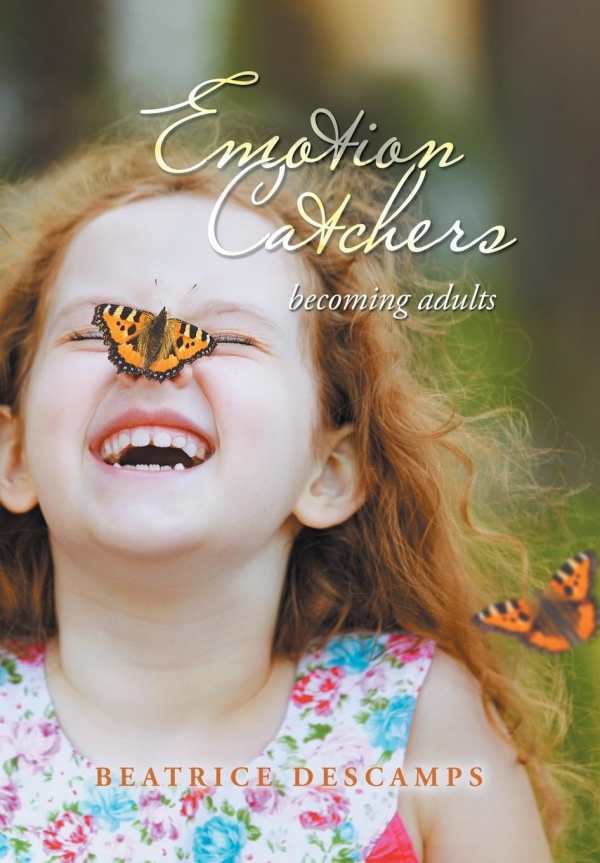Emotion Catchers
Becoming Adults
Emotion Catchers is a quaint modern fairy tale that’s most focused on the happenings of daily life.
In Beatrice Descamps’s charming coming-of-age novel Emotion Catchers, girls harness their empathic powers to fight off evil forces.
Marguerite narrates; she is eighteen years old and about to venture beyond the Isle of Auborda. Herein, she looks back on a final summer adventure with her closest childhood friends, Alex and Juliette. Their early childhood experiences at school are also covered: Marguerite, Alex, and Juliette received loving lessons in mindfulness from Mrs. Dubois, a fellow empath who also feels others’ emotions as her own. At the same time, Devoline, Zara, and Imogen, a troubled rebel, attended the school on the other side of Auborda.
Quasi-magical elements play in: Devoline casts a spell of invisibility when she feels afraid; Imogen and Juliette befriend a mysterious white horse that roams the island; and the girls often form meditation circles to cast positive energy into the universe. Tension is light: the main evil that the girls face is a witch who tempts them to use their emotion-catching abilities for selfish means. In place of clear conflicts, the book focuses on empaths and childhood development.
Substantial portions of the book are devoted to descriptions of the quiet, recuperative meditative practices that Mrs. Dubois and Marguerite’s friends employ to recuperate from catching the emotions of others. Still, even though feelings drive the cast’s actions and choices, the language itself is quite simple. It is direct in pronouncing its themes, including the powers of friendship and belonging. And it imparts a cautionary, moralistic message on the long-lasting negative effects of childhood neglect in children who are empaths.
This warning is best embodied in Imogen’s story; she grows up in troubled family circumstances. Without a safe environment to explore and learn how to deal with her emotions, she often lashes out, expressing anger and hatred. This leaves her most at risk for falling into evil and wrongdoing. Still, this moral ambiguity means that Imogen is complex in a way that the other girls are not. Even Marguerite is indistinguishable among her peers—a mere paragon of virtue, and a somewhat passive receiver of Mrs. Dubois’s wisdom. In the end, it is Imogen, not the book’s ostensible heroine, who transforms the most, thanks to the numerous hard knocks and challenges that she faces.
Seeking to understand and channel their deep feelings, women come of age on a magical island in the empathetic novel Emotion Catchers.
Reviewed by
Isabella Zhou
Disclosure: This article is not an endorsement, but a review. The publisher of this book provided free copies of the book and paid a small fee to have their book reviewed by a professional reviewer. Foreword Reviews and Clarion Reviews make no guarantee that the publisher will receive a positive review. Foreword Magazine, Inc. is disclosing this in accordance with the Federal Trade Commission’s 16 CFR, Part 255.

